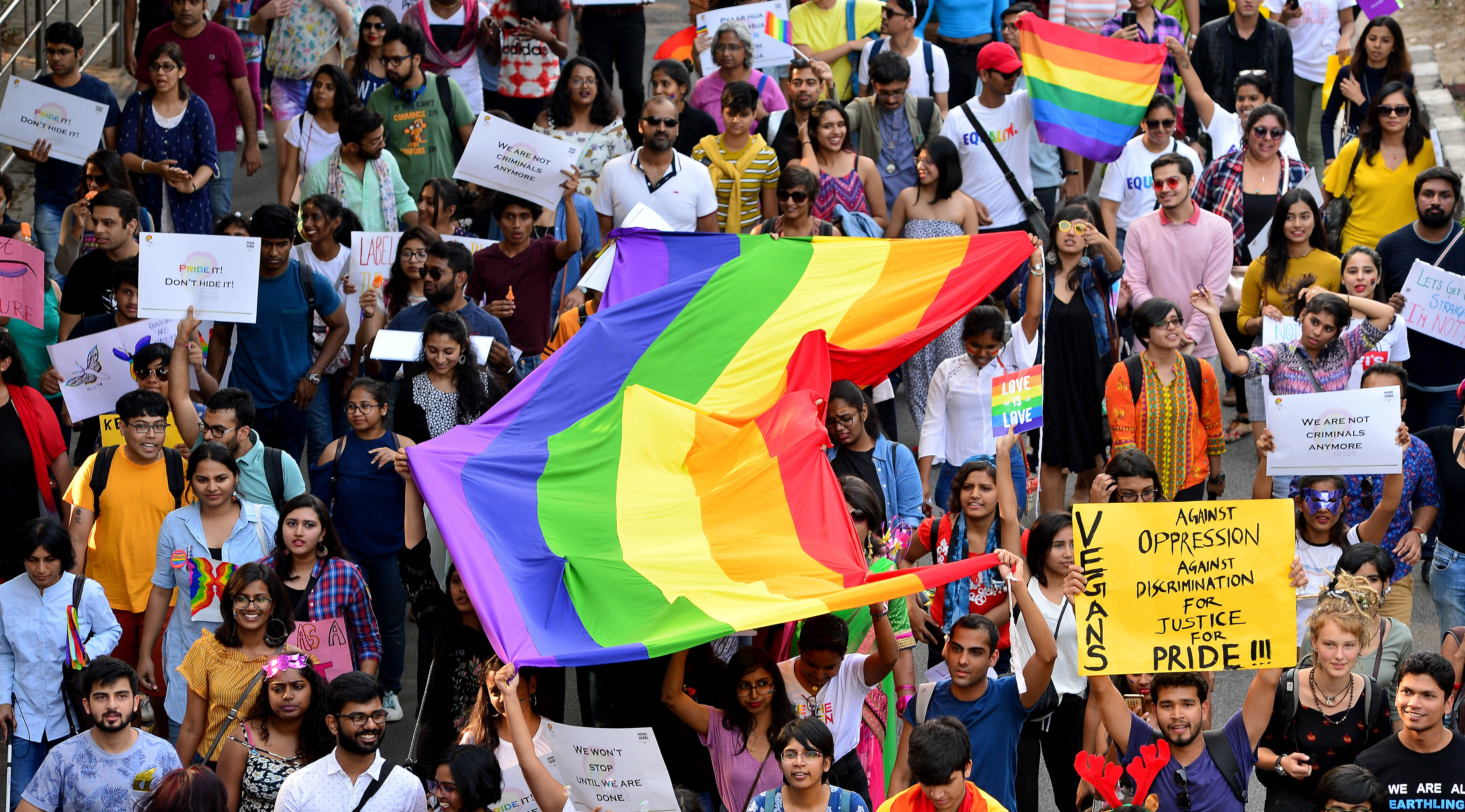
For queer people, finding a partner is a tough job. Going to clubs or finding people through friends is not always practical and even when they meet in open places like Cubbon Park, they are shooed away by homophobic security guards.
Their best choice seems to be dating apps as “it’s a less judgemental space and we have a certain amount of control,” says Treesa, a lesbian. But there are no specific apps for queer women, which complicates the dating scene for them.
Queer people have faced multiple instances of harassment on these apps. The experiences of queer men have been extensively reported, while those of queer women have not received the same attention. “The LGBTQ community is not all rainbow-hued — misogyny and elitism exists within the community as well, which makes it difficult for us to be heard,’’ says Treesa.
Sneha, a lesbian, says that while Bengaluru is relatively more LGBTQ-friendly, which makes finding others like her easier, she still encounters many men masquerading as women on apps like Tinder.
“Lesbians have been overly sexualised due to porn. Some of these men actually ask if they can watch us perform sexual acts for their pleasure,” she says.
Treesa points out that local LGBTQ app ‘Delta’ also has its share of uncomfortable experiences. The app claims to be India’s first homegrown dating app for the LGBTQ community.
“A lot of women who are ‘exploring’ their sexuality use Delta but they are also homophobic and misogynistic. Some of them have even recommended conversion therapy to me,” she says.
She faced a terrifying situation when a woman she met on the app turned up with her boyfriend at her apartment. “They demanded a threesome, which I had never wanted or agreed to,’’ says Treesa. She stayed with a friend that night as the duo took over her apartment.
“I tried to go to the police to file an FIR, but they didn’t acknowledge my identity as a queer woman. They didn’t understand the situation and because of that they refused to file an FIR,” she says.
The Humsafar Trust, one of the oldest LGBTQ organisations in India, reports that 19 cases of harassment through dating apps were reported by gay men in Karnataka.
However, the numbers will be higher as many of those who have faced harassment do not come forward. But there are no numbers when it comes to queer women.
“Our identities are a combination of our womanhood and our queerness; both these are marginalized in society, making it more difficult for queer women to report harassment,” says Sneha.
In terms of precautions, the common ones are to not meet someone unless you’re sure of their identity or to meet people in a public setting. But as Treesa explains, it’s not as easy as it sounds, “I’ve gotten kicked out of restaurants while on dates because I made other patrons ‘uncomfortable’.”
Queer events have been seen as the best alternative to online dating and both Sneha and Treesa have moved towards these spaces now.
“They are the best option and we’re lucky that Bengaluru has such events. They not only help you in terms of finding a partner but also let you create a community,” says Sneha